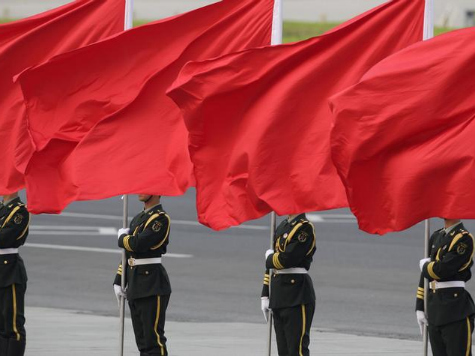This article originally appeared in The Economist.
The clue is in the name. The Shanghai Co-operation Organisation (SCO) groups six countries–China, Kazakhstan, Kyrgyzstan, Russia, Tajikistan and Uzbekistan–and aims to be the dominant security institution in its region; but its origin and purposes are largely Chinese.
So it looks rather worrying from a Western point of view that the group has agreed to expand and that India, Pakistan and Iran are all keen to join: the rise of a kind of China-led NATO to which even America’s friends, such as India and Pakistan, seem drawn. Yet that is to misunderstand the sort of organisation the SCO aspires to be. It does indeed pose a challenge to the American-led world order, but a much more subtle one.
On September 11th and 12th the SCO held its 14th annual summit in Dushanbe, Tajikistan’s capital. It agreed to adopt procedures for expansion, first for those countries that are already observers. India and Pakistan are likely to join in the next year. Iran is at present disqualified because it is under UN sanctions. Another observer, Mongolia, is a democracy and has long had qualms about joining what looks like a club for authoritarians. Afghanistan, the final observer, has other priorities.
The SCO summit came hot on the heels of one held by NATO, in Wales. This gave columnists in China and Russia the chance to tut-tut about the “20th-century” or “cold war” or “confrontational” mentality that animates NATO, and to boast about what makes the SCO different from what Russia’s foreign minister, Sergei Lavrov, has called such “relics of a past era”, with the rigid discipline imposed by particular blocs of countries.
In August the SCO held its largest joint military exercises yet, an anti-terrorist drill in Inner Mongolia in China involving more than 7,000 personnel. The SCO’s boosters, however, insist it is not an alliance, like NATO, but a “partnership”, with no adversary in mind. That is not entirely true. It has always been explicitly directed against three enemies, even if they are only abstract nouns: the “three evil forces” of terrorism, separatism and extremism. China, in Xinjiang; Russia, in Chechnya; the Central Asian members, in the Ferghana Valley and on their borders with Afghanistan. All SCO members face a threat from Islamist extremism.
Hence the plea in Dushanbe from Xi Jinping, China’s president, that the SCO should “focus on combating religion-involved extremism and internet terrorism”. China’s problems with violent extremism from ethnic-Uighur Muslims in Xinjiang have worsened recently. Uighur militants have committed terrorist attacks in Xinjiang and other parts of China. They have also been fighting for jihadist groups elsewhere–in the tribal areas of Pakistan, for example. And reports suggest some have joined Islamic State (IS) in Iraq and Syria. This month four Uighurs with alleged IS links were detained on the Indonesian island of Sulawesi.

COMMENTS
Please let us know if you're having issues with commenting.